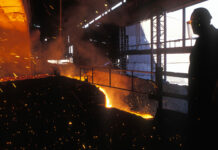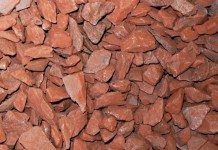
[miningmx.com] – THE Industrial Development Corporation (IDC) said the establishment of new steel manufacturing capacity in South Africa would be managed responsibly as it was wary of the “unintended consequences”.
The IDC’s divisional executive for mining and manufacturing, Abel Malinga, said that while there was a strategy to establish a steel mill in South Africa, it would be “introduced responsibly” and with an understanding of market conditions. “We will avoid unintended consequences,” he said.
The Department of Trade and Industry (DTI) said on December 6 that it was in discussions “… at a relatively advanced stage” with potential offshore investors for the establishment of a new steel producer in South Africa.
Garth Strachan, acting deputy director-general at the DTI, said the proposed steel manufacturing investment would be for a niche, high-value product aimed at the manufacturing sector. “We will be fast-tracking this,’ he said.
Said Malinga: “Certain stakeholders may not be happy with Amsa (ArcelorMittal South Africa), but it was a very important producer”.
“What we need to do is introduce steel capacity with new technology where we can make steel out of locally sourced materials,” Malinga added.
At the moment, South African steel producers are forced to import steel-feed minerals such as coking coal which was proving expensive,” he said.
Although Malinga sounded a note of caution regarding the steel-making plans, he said there were fundamental reasons for introducing another player as aspects of South Africa’s steel market were uncompetitive.
Amsa controlled about 85% of the flat steel market (corrugated and automotive sheets) while the profile market (steel used in the construction industry) was dominated by four producers, he said.
In addition, about 65% of the domestic market was supplied by a single steel merchant in Macsteel. “Once you get that, you can forget about competition,” he said, adding that steel merchants steel steel at a 150% mark-up from factory gate prices.
As for small-scale fabricators who produce steel from scrap, they are often paying export parity prices while transport costs through Transnet were also high. Road transport costs were prohibitive, he said.
“So we have completed a feasibility on a steel plant and we are talking to potential partners about the development,” said Malinga.
KALAGADI MANGANESE
Meanwhile, Malinga said there was no progress to report regarding plans by Kalahari Resources to buy Amsa’s 50% stake in Kalagadi Manganese, a company in which the IDC has a 10% stake.
Kalagadi Manganese owns a manganese mine and sinter plant, which recently became operational, and also plans to build a manganese smelter at Coega in the eastern Cape. The project is thought to be a feature of the South African government’s beneficiation strategy. Manganese is used as a strengthening agent in the manufacture of steel.
In terms of a special purpose agreement with Kalahari Resources’ CEO Daphne Mashile-Nkosi, Kalahari Resources was to buy Amsa’s stake either directly or through a nominee company. The IDC has pre-emptive rights over shares in Kalagadi Manganese.
Malinga said the IDC had not made a decision whether to renounce its pre-emptive rights, but would do so if it was in the interests of Kalagadi Manganese. A buyer would want no less than 50% of the project, he said.
Asked if the IDC would take a greater interest in the company, Malinga said: “We are a bank, not an operator”. Amsa’s stake in Kalagadi Manganese, which it is selling after a dispute on mining rights with Kalahari Resources, has been valued at no less than R3.9bn.











